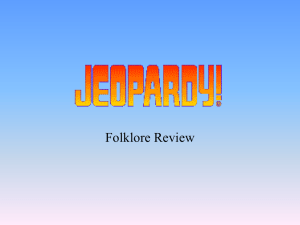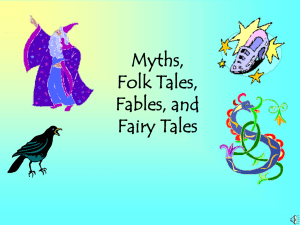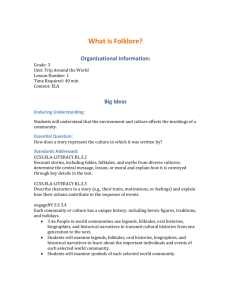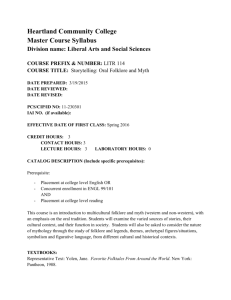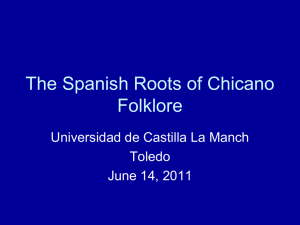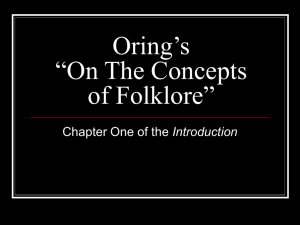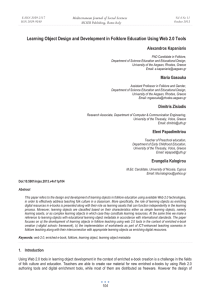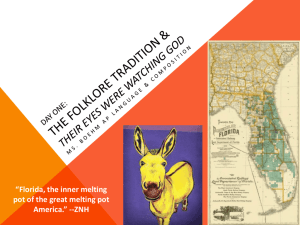Conflict and Theme in World Folklore
advertisement
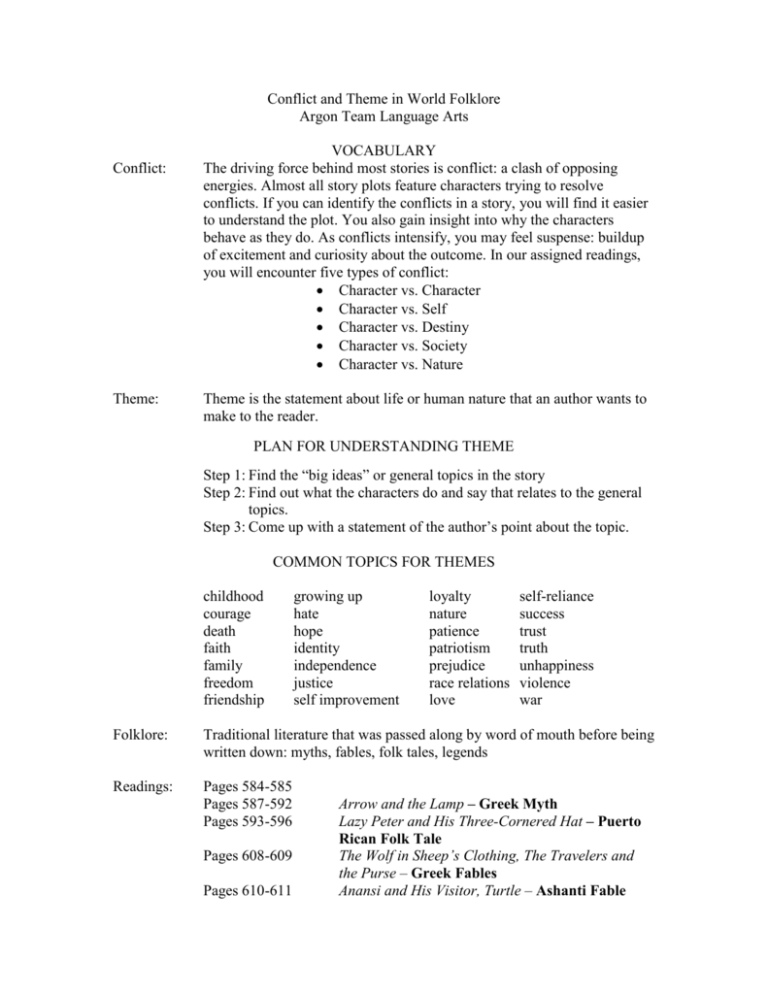
Conflict and Theme in World Folklore Argon Team Language Arts Conflict: Theme: VOCABULARY The driving force behind most stories is conflict: a clash of opposing energies. Almost all story plots feature characters trying to resolve conflicts. If you can identify the conflicts in a story, you will find it easier to understand the plot. You also gain insight into why the characters behave as they do. As conflicts intensify, you may feel suspense: buildup of excitement and curiosity about the outcome. In our assigned readings, you will encounter five types of conflict: Character vs. Character Character vs. Self Character vs. Destiny Character vs. Society Character vs. Nature Theme is the statement about life or human nature that an author wants to make to the reader. PLAN FOR UNDERSTANDING THEME Step 1: Find the “big ideas” or general topics in the story Step 2: Find out what the characters do and say that relates to the general topics. Step 3: Come up with a statement of the author’s point about the topic. COMMON TOPICS FOR THEMES childhood courage death faith family freedom friendship growing up hate hope identity independence justice self improvement loyalty nature patience patriotism prejudice race relations love self-reliance success trust truth unhappiness violence war Folklore: Traditional literature that was passed along by word of mouth before being written down: myths, fables, folk tales, legends Readings: Pages 584-585 Pages 587-592 Pages 593-596 Pages 608-609 Pages 610-611 Arrow and the Lamp – Greek Myth Lazy Peter and His Three-Cornered Hat – Puerto Rican Folk Tale The Wolf in Sheep’s Clothing, The Travelers and the Purse – Greek Fables Anansi and His Visitor, Turtle – Ashanti Fable Pages 612-614 Pages 619-621 Pages 625-629 Pages 633-635 Pages 636-639 Pages 646-647 Pages 653-659 A Blind Man Catches a Bird – Zimbabwean Folk Tale Phaethon – Greek Myth Kelfala,s Secret Something – Kenyan Folk Tale Prometheus – Greek Myth Where the Girl Saved Her Brother – Native American Legend Echo and Narcissus – Greek Myth The Fatal flower – Chinese Folk Tale Assignments In your composition book, please complete a profile for each piece of folklore. Title Conflict Theme Protagonist Antagonist Setting Climax Using the language of science, who or what in the story is the independent variable? Using the language of science, who or what in the story is the dependent variable? What is the lesson learned from this piece of folklore that can be applied to mankind? folklore conflict sear aptitude stench myth wretched pyrethrum sustenance consultation VOCABULARY QUIZ: EXAM: March 4 & 5 VOCABULARY folktale fable infer abode calabash akimbo hover illicit legend acknowledge explicit vexed theme dissuade endow repulsive February 25th (1 & 3) February 27th (2 & 4)
